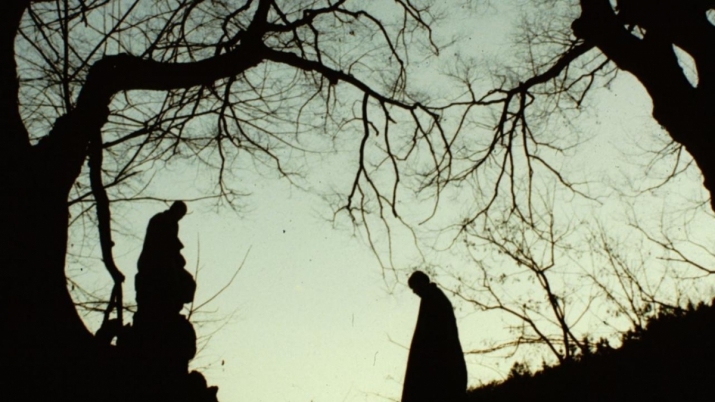NEWS
Denver Film Society Screening Buddhist-themed Film Series Every Tuesday in January
 A scene from Spring, Summer, Fall, Winter… and Spring. From 303magazine.com
A scene from Spring, Summer, Fall, Winter… and Spring. From 303magazine.comThe Denver Film Society (DFS), a Colorado-based non-profit organization, is for the first time screening an annual series of Buddhist-inspired films at the Sie FilmCenter in Denver every Tuesday this month. This month-long series is showing two Korean films that portray monastic Buddhism in Asia today, and two American films that carry significant Buddhist themes.
“We’re trying to do two things: two Asian films that focus on monastic Buddhism and traditional forms, and two American films that reflect the influence of Buddhism in America, that [pay] more attention to Buddhism in everyday life,” said Jeffrey Mahan, professor of religion and film at Denver’s Iliff School of Theology, who is co-leading the Buddhism in Film series. (303Magazine.com)
On 10 January, the Korean film Spring, Summer, Fall, Winter . . . and Spring, directed by Kim Ki-Duk, exhibited traditional Asian and monastic Buddhism in the context of a narrative that explored desire and the cyclic Buddhist concept of history.
“I think it is a fine film and remarkably beautiful, so that it is cinematically satisfying. But it’s also a film where the Buddhist ideas are really accessible. This sense, Buddhist sense, of the unfolding circle of life, in which we come back to these same issues again and again. For us it was a great starting place,” said Mahan. (303Magazine.com)
On 17 January, Harold Ramis’ Groundhog Day will explore similar questions of desire in a story that discusses the movement of Buddhist concepts into American culture and the way that a Buddhist outlook can serve as a critical lens illuminating various features.
“Here we think the comparisons and connections between these two films, Groundhog Day and Spring, Summer, Fall, Winter… and Spring, are really strong and help people to begin to think about how to apply Buddhist thought to American culture and how to look for its influence in American films,” Mahan told 303Magazine.com.
 A scene from Why Has Bodhi-Dharma Left for the East. From 303magazine.com
A scene from Why Has Bodhi-Dharma Left for the East. From 303magazine.comOn 24 January, Day Young-Kyun’s Why Has Bodhi Dharma Left for the East will be screened. It discusses questions of suffering, death, and the Buddhist vocation dealing with a master, student, and child in a remote monastery as they search for the way to enlightenment.
“I think it’s quite long and it’s quite challenging, so it’s a harder film than Spring, Summer, but with a similar setting in the midst of monastic life. Here, again [there is] the theme of master and student, the struggle with vocation, but more of an expanded power of Buddhist ideas and images. We wanted to follow up Spring, Summer with a film that will let people go deeper,” said Mahan. (303Magazine.com)
On 31 January, the satirical Birdman or (The Unexpected Virtue of Ignorance), which Alejandro G. Iñárritu directed, will prompt reflections about the meaning of identity and vocation.
“We thought that Birdman, like Bodhi-Dharma, is playing with these ideas about vocation—Who am I called to be? What does my work look like? And in a way that invites a more general religious reflection as well as lending itself to Buddhist interpretation,” Mahan told 303Magazine.com.
Established in 1978, the DFS has worked to promote film as an art form as well as a civic forum. It has developed a program that includes year-round screenings, community outreach projects, and special events. In addition, it organizes popular annual festivals like Film on the Rocks, a cinema and concert series held throughout the summer at Red Rocks Amphitheatre in Colorado.
See more
Inside the first ever DFS “Buddhism in Film” Series (303Magazine.com)
Buddhism in Film: Overview (Denver Film Society)
About Denver Film Society (Denver Film Society)














